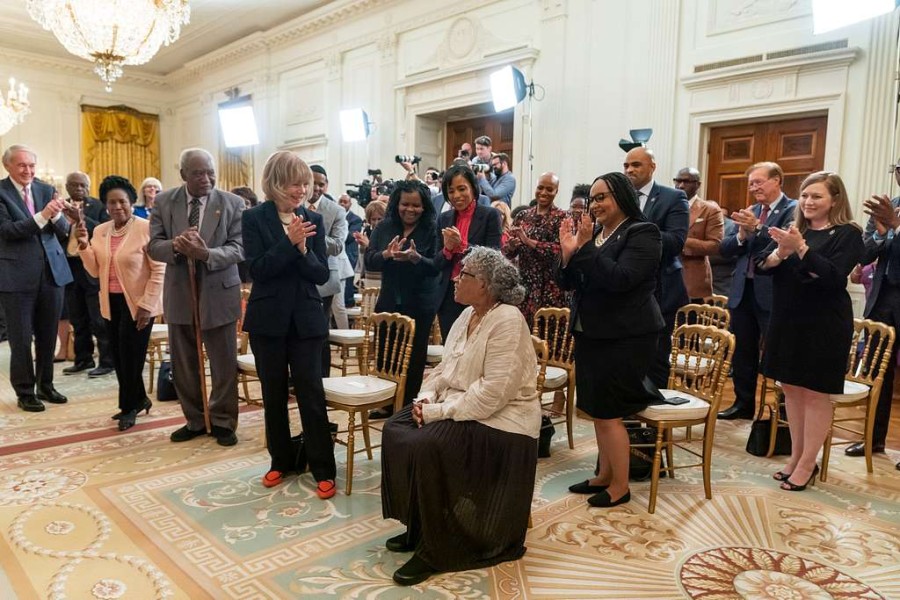This past month, the United States officially observed Juneteenth for the fourth time since President Joe Biden declared it a federal holiday in 2021. This holiday commemorates the day in 1865 when General Gordon Granger arrived in Galveston Bay, Texas, to announce the Union Army would enforce the Emancipation Proclamation, at last freeing all enslaved African Americans including more than 250,000 slaves in Texas. Although some slave owners were aware that the Emancipation Proclamation went into effect in 1863, the Union Army did not enforce it until June 19, 1865. Since then, Juneteenth has been celebrated in Texas and communities across the United States.
Commemorations are a chance to acknowledge past milestones and reflect on their relevance to the present. In the spirit of Juneteenth, it is important to highlight and celebrate the wins and progress made toward fulfilling the promise of liberty for all. Last year, the California Reparations Task Force, the first statewide body to study reparations for Black people, released its landmark report with 115 policy recommendations to address disparities in health and health care, education, housing, and criminal and environmental justice. Those recommendations have been incorporated into a package of 14 reparations bills. In May, the California State Senate passed three of those bills aimed at correcting the harms of slavery and anti-Black racism. The success of these bills can be tracked as they move through the Assembly and Senate.
Several cities and states around the country also created reparations task forces. In New York, the recently established Commission on Reparations will receive $5 million to examine the lasting impact of slavery on people in New York and propose recommendations for repair. Kansas City, Missouri just allocated $360,000 to the mayor’s Commission on Reparations, established last year.
And in Vermont, building on the legislature’s 2021 eugenics apology, the state established the Truth and Reconciliation Commission (TRC), which it launched last year. While the TRC’s work is ongoing, its research into the state's past discrimination is already informing discussions about learning from the past and preventing future violations.
These are just a few highlights of the many efforts underway across the United States to advance acknowledgment, repair, and healing.
In 2016, at 89 years old, Ms. Opal Lee, known as the “grandmother of Juneteenth,” set out on a quest to make it a national holiday. Walking 2.5 miles a day, to recognize the 2.5 years it took for the Emancipation Proclamation to be enforced, Ms. Lee collected 1.5 million signatures, which she delivered to Congress in 2017. Her efforts, like the many commissions at work across the country, remind us of the ongoing march toward justice.
_____________
PHOTO: Opal Lee is recognized as President Joe Biden delivers remarks at the Juneteenth National Independence Day Act Bill Signing on June 17, 2021, in the East Room of the White House. (Chandler West/White House)

